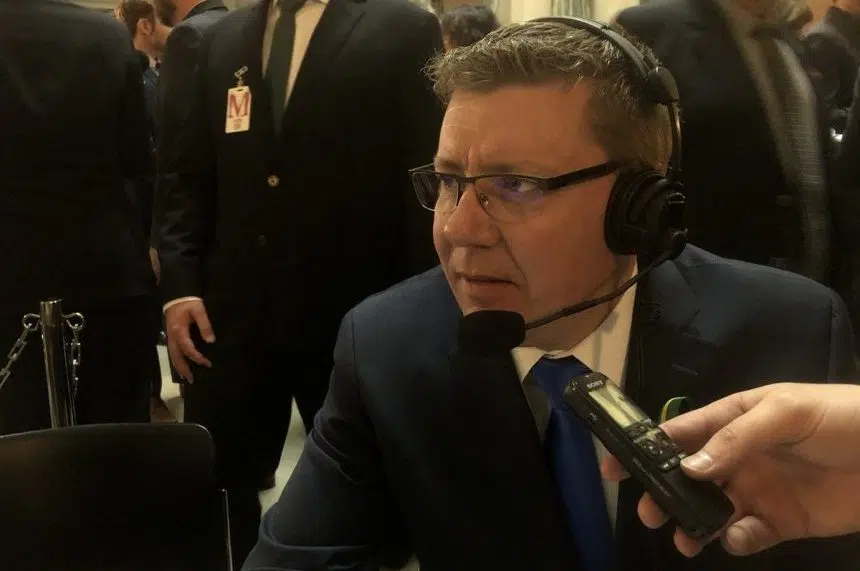While there appears to be general feeling of satisfaction with the 2018 provincial budget, the devil is in the details.
Saskatchewan Premier Scott Moe and Finance Minister Donna Harpauer delivered their first budget since the Rosthern-Shellbrook MLA won the Sask. Party leadership.
The province said Tuesday the budget keeps Saskatchewan on track to return to balance during the 2019-20 fiscal year, with a $365-million deficit pegged for this year.
“Most of those changes stay in place. We need to ensure we are working with our stakeholders very closely so that we do not shock the economy, but so that we continue to provide the service the people of the province expect of the provincial government,” Moe said.
Moe said this budget has lowered the province’s dependency on resource revenue, dropping from 32 per cent at the height of the resource boom, to 10 per cent.
Another change the recent budget brings is the application of PST on used cars — with some exceptions. If the purchase is under $5,000, or it is between qualifying family members.
Saskatchewan’s six per cent PST has also been added to energy star appliances.
Moe said they had consulted with people in the industry over the past few weeks and months.
“It’s a change we ultimately decided to make,” he said.
Moe noted while there was some tax changes, there is no tax rate increases in this budget.
Opposition NDP leader Ryan Meili described the budget as being “muted.”
“There’s nothing there that’s really particularly inspiring, I don’t see a great sense of vision, a great plan for the future,” Meili said.
“I see this as a budget that has lost track of the horizon.”
Meili added the biggest challenges facing the province include the environment, climate change and closing the gap between Indigenous and non-Indigenous people.
The mayors of Saskatchewan’s largest cities reacted mostly positively.
“Compared to last year, this budget has some positive steps. From a municipal standpoint we are seeing a half of what was taken away from the grants-in-lieu change in the last budget, return through a SaskEnergy surcharge,” Saskatoon Mayor Charlie Clark said.
Clark said he believes the provincial government learned from the previous budget that surprise cuts and changes create challenges and hardships.
Regina Mayor Michael Fougere said the city is in a much better place than they were last year in regards to grants-in-lieu.
“We are looking at $1.1 million in Crown properties, which is important for us,” Fougere said.
Given the financial situation in the province, the mayor added he is pleased with the final result.
For other cities and towns, reaction was mixed as not everyone is back to previous funding levels, while others are getting more.
“We didn’t get everything we asked, but we felt we were being listened to at least,” said Gordon Barnhart, the Saskatchewan Urban Municipalities president.











